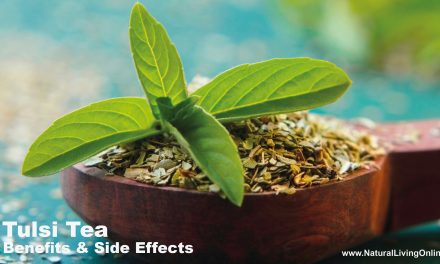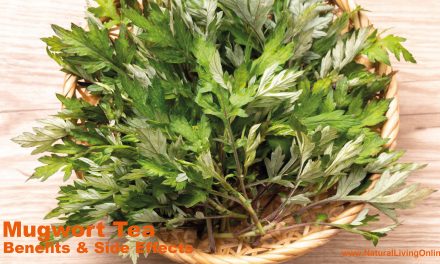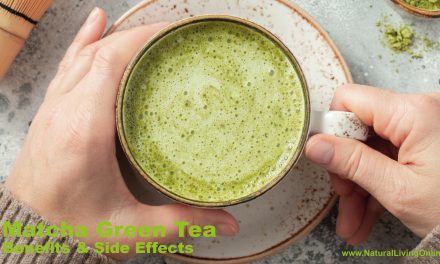Green tea is a type of tea that is made from Camellia sinensis leaves that have not undergone the same withering and oxidation process used to make oolong teas and black teas. Green tea originated in China, but its production has spread to many countries in Asia. Green tea has been consumed in China for thousands of years and was traditionally used for medicinal purposes. It wasn’t until the 8th century that green tea consumption spread to Japan. Today, green tea is consumed both for its health benefits and as a delicious beverage.
Green, Black, Oolong tea
Green, black, and oolong teas all come from the same plant, Camellia sinensis. The difference lies in the processing. Black tea is fully oxidized, oolong tea is partially oxidized, and green tea is unoxidized.
Green tea components and their therapeutic effects
Overall green tea is a healthy beverage. It is rich in catechins, a type of phytochemical that acts as an antioxidant. Catechins are responsible for many of the health benefits associated with green tea. Here we explore some key components and their benefits.
Catechins
The main type of catechin in green tea is epigallocatechin-3-gallate (EGCG). EGCG is a powerful antioxidant that has been shown to protect cells and molecules from damage. It has also been shown to boost the immune system, lower cholesterol levels, and prevent the growth of cancer cells.
Caffeine
Green tea contains caffeine, which is a stimulant that can improve mental alertness and physical performance. However, too much caffeine can cause side effects such as insomnia, anxiety, and stomach upset.
Theanine
Theanine is an amino acid that is found in green tea. It has been shown to promote relaxation and improve sleep quality.
Saponine
Saponine is a compound that is found in green tea. It has been shown to have anti-inflammatory and antimicrobial effects.
Flourine
Flourine is a mineral that is found in green tea. It has been shown to protect teeth from cavities and to improve bone health.
γ-aminobutyric acid (GABA)
GABA is a neurotransmitter that has been shown to promote relaxation and reduce anxiety.
Minerals
Green tea is a good source of minerals such as manganese, potassium, and magnesium. These minerals are essential for many biochemical processes in the body.
Vitamins
Green tea is a good source of vitamins C and E. Vitamin C is an antioxidant that can protect cells from damage, while vitamin E is involved in immune function and skin health.
Health Benefits
Green has numerous health benefits. Some of the key benefits include:
Brain Function
The caffeine in green tea can improve brain function and make you feel more alert and awake. The amino acid L-theanine in green tea can also promote relaxation and improve brain function.
Fat Burning and Weight Loss
When it comes to weight loss, we have mix results. some studies prove that green tea has been shown to boost metabolism and increase fat burning. While there are some studies which negate the weight loss benefit of green tea. Nevertheless green tea does provide a lot of health benefits and for some people it may also be good for weight loss. But be careful while drinking too much (more than 3 to 4 cups a day) of green tea or taking green tea extract capsules as it may be harmful for your liver.
Lowers risk of cancer
Cancer is the uncontrolled growth of cells in the body. Green tea has been shown to lower the risk of several types of cancer, including breast cancer, colorectal cancer, gastric cancer, pancreatic cancer and skin cancer. It contains epigallocatechin-3-gallate (EGCG), a type of catechin that has been shown to have cancer-fighting properties. Green tea may also help to protect against damage caused by ultraviolet (UV) radiation, which is a major risk factor for skin cancer.
Skin Health Benefits of green tea
Green tea can improve your skin health in numerous ways. When applied topically, green tea can help reduce the appearance of wrinkles and fine lines. Additionally, it can help protect your skin from sun damage and may even reduce the risk of skin cancer.
When consumed orally, green tea can help improve your overall skin health by providing antioxidants and reducing inflammation.
Green tea contains polyphenols, which are powerful antioxidants. These antioxidants can help protect your skin from damage caused by ultraviolet (UV) rays. Additionally, green tea has been shown to reduce the risk of skin cancer.
Oral Hygiene
Green tea can also improve oral health. The catechins in green tea can kill bacteria and inhibit the growth of viruses that cause sore throats, dental cavities, and other infections.
May help prevent Diabetes and Heart Disease
Green tea may help prevent type 2 diabetes and cardiovascular disease. One large study found that people who drank the most green tea had a significantly lower risk of dying from heart disease or stroke. Another study found that those who consumed green tea had a lower risk of developing type 2 diabetes. Green tea also helps reduce low-density lipoprotein cholesterol, hence improving blood flow.
Detoxifies body by improving liver function
Green tea can also help detoxify the body by improving liver function. One study found that green tea extract increased the activity of enzymes that break down toxins in the liver. Green tea may also help reduce inflammation caused by nonalcoholic fatty liver disease. In a study people who consumed green tea showed reduction in in liver enzyme levels, which indicates healthy liver. If you have a liver disease, consult your doctor before consuming green tea and over dosage may also be harmful for liver.
How to consume green tea
You can consume green tea in many ways. You can either drink it plain, or add lemon, honey, or mint to enhance its flavor. If you are anemic (having iron deficiency) then as said above, green it not so good for you as tannins in green tea inhibit the iron absorption. But the good news is that you can add few drop of fresh lemon juice which will not only add flavor but multiple benefits as well. One of them is vitamin C in lemon promotes iron absorption. You can also have it an hour before or after meal to give your body enough time to absorb iron.
You can also buy green tea supplements, which are available in powder, liquid, or capsule form. When buying green tea supplements, be sure to buy from a reputable source, as some supplements may be contaminated with lead or other toxins.
Risks and side effects
Green tea is generally safe for most people when consumed in moderate quantity like 3 to 4 cups a day. However, it can cause side effects in some people. These side effects can range from mild to serious and include headaches, anxiety, heart palpitations, diarrhea and dizziness.
Additionally, green tea contains caffeine. Caffeine can cause insomnia, anxiety and other side effects. If you are sensitive to caffeine, you should avoid green tea or limit your intake. Overdosing of caffeine may also cause irregular heart beat and blood pressure. Caffeine buildup can also cause stress to liver and may lead to liver damage and decease. People with heart conditions or taking blood-thinning medication should avoid green tea as it may increase the risk of bleeding. Green tea may also interact with certain medications, such as blood pressure medication and antidepressants. Therefore, if you are taking any medication, it is best to speak to your doctor before drinking green tea.
Pregnant and breastfeeding women should avoid green tea. Catechins, caffeine, and Tannins have been linked to increased risks during pregnancy. Green tea may contain lead, which can be toxic to the developing brain. Drinking too much of green tea can lead to miscarriage and birth defects in children.
Compounds in green tea inhibit the absorption of calcium, resulting in a deterioration of bone which may lead to bone disease such as osteoporosis.
Taninns present in green tea can also cause stomach upset and may irritate the lining of the intestine. Taninns may also interfere with the absorption of iron from food. If you have iron-deficiency anaemia, you should avoid drinking green tea.
People taking high doses of green tea should monitor their liver enzymes to avoid liver damage or acute liver failure because excessive amounts of catechins present in green tea are harmful to the liver. Caffeine buildup is another stress factor for liver.
Matcha is a type of green tea that is very concentrated and contains high levels of caffeine and lead. Therefore, it should be avoided by pregnant women, young children and those who are sensitive to caffeine.
In conclusion, green tea has numerous health benefits. However, it also contains caffeine and lead, which can be harmful in large amounts. Pregnant women, young children and those who are sensitive to caffeine should avoid green tea. It is important to limit your intake of green tea if you are consuming it for health benefits.
Frequently Asked Questions
How much green tea should I drink per day?
Most people can safely drink 3–4 cups of green tea per day. This is equivalent to providing about 240–320 mg of catechins per day. People with liver problems should avoid drinking more than 2 cups per day.
Is it better to drink green tea with or without milk?
Green tea can be enjoyed with or without milk. Milk can inhibit the absorption of catechins from green tea, but it does not appear to have any adverse effects on health.
What are the side effects of drinking too much of green tea?
Green tea is generally safe for most people when consumed in moderate quantity like 3 to 4 cups a day. However, it can cause side effects in some people. These side effects include insomnia, anxiety, irritability, stomach upset, and dizziness. Green tea also contains caffeine. Caffeine can cause side effects such as insomnia, anxiety and other side effects. If you are sensitive to caffeine, you should avoid green tea or limit your intake. Overdosing of caffeine may also cause irregular heart beat and blood pressure.
Is it better to drink green tea hot or cold?
There is no difference. Green tea can be enjoyed hot or cold. However, iced green tea may contain more fluoride and catechins than hot green tea.
When should I avoid green tea?
Pregnant and breastfeeding women should avoid green tea. Catechins, caffeine, and Tannins have been linked to increased risks during pregnancy. Green tea may contain lead, which can be toxic to the developing brain. Drinking too much of green tea can lead to miscarriage and birth defects in children.
How long does green tea last?
Green tea can last for up to 2 years if stored properly. Keep green tea in a cool, dark place away from direct sunlight. Avoid storing green tea in the fridge as the cold temperature can damage the antioxidants present in it.
Can I drink green tea if I am on medication?
Green tea can interact with certain medications. Catechins present in green tea can increase the level of liver enzymes. If you are taking any medication for liver disease, you should avoid green tea. Green tea can also interact with blood thinners and blood pressure medications. If you are taking any of these medications, you should consult your doctor before drinking green tea.
References:
1. https://www.ncbi.nlm.nih.gov/pmc/articles/PMC1964900/
2. https://nccih.nih.gov/health/greentea
3. https://www.ncbi.nlm.nih.gov/pubmed/22214254
4. https://www.ncbi.nlm.nih.gov/pmc/articles/PMC5093162/
5. https://www.livestrong.com/article/469873-the-effects-of-green-tea-on-blood-clotting/
6. https://www.ncbi.nlm.nih.gov/pubmed/10404946
7. Beneficial effects of green tea: A literature review
8. Beneficial Properties of Green Tea Catechins
9. Health-promoting effects of green tea
This website does not provide medical advice.
All information provided on this website, and on associated social media networks, including but not limited to texts, images, and numbers are for general information purpose only. It is not intended as medical advice and it does not include all possible precautions, side effects, or interactions that may occur. Neither NaturalLivingOnline.com nor its author/founder take responsibility for how you use this information. Statements contained on NaturalLivingOnline.com have not been evaluated by the FDA. You should conduct thorough research via multiple sources and consult your physician or qualified doctor before using any essential oil or herbal remedy. Information on NaturalLivingOnline.com must not be relied upon for medical, legal, financial or other decisions.













